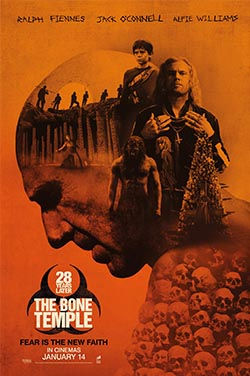The King's Man Movie Review
- Rob Cain

- Jan 7, 2022
- 3 min read

Released: 26th December 2021 (UK)
Length: 131 Minutes
Certificate: 15
Director: Matthew Vaughn
Starring: Ralph Fiennes, Gemma Arenton, Djimon Hounsou, Harris Dickinson, Rhys Ifans, Tom Hollander and Matthew Goode
When it was brought to the silver screen in 2014, Kingsman: The Secret Service took many audiences by surprise with its driving momentum. Following the mixed results of The Golden Circle, the series has gone backwards in time for its third entry. Sadly, the quality continues to drop and The King’s Man ranks as the weakest release so far.

A full century before the original, the Duke Orlando Oxford (Ralph Fiennes) has the weight of world events on his mind. With the First World War just around the corner, the Red Cross patron is concerned that greater treachery is afoot, so he uses his resources to form a mini-intelligence agency and track down the perpetrators. A slower pace takes hold and those who enjoyed previous entries will be left wanting. With the film based in real history, a large portion of the first act is dedicated to setting up tensions throughout Europe. Yet the biggest problem with the story is a failure to focus and establish a drive; it bounces all over the place and transfers between too many tones. A twist at the end of the second act tosses an important character out the window, desperately trying to convey the futility of trench warfare before cutting away to a more subdued version of the franchise’s special agent high jinks. With little build-up to the final encounter, the story is a let-down for a large portion of its runtime. The only positive aspect is how it integrates historical events with capable efficiency.

Kingsman has featured charismatic performances before and while the prequel doesn’t lose sight of this, it doesn’t contribute much either. Ralph Fiennes is a good choice for the lead role; with his steady, considered mannerisms, the gentlemanly side of the agents fits his persona. His son Conrad is less engaging; Harris Dickinson tries his best to give the character a worthy motive, but you won’t be invested in his side of the plot. The other team members include Polly and Shola; played by Gemma Arenton and Djimon Hounsou, these characters are just there, with no hint of depth. Their foes have taken another step down; we have a circling caravan of cookie-cutter villains and none of them are engaging or entertaining. Led by the Shepherd (Matthew Goode), who doesn’t appear in full until the end, his cronies shuffle on and off stage with no impact. Not even Rasputin (Rhys Ifans) can salvage the set as he’s knocked out to make way for weaker compatriots. In short, we have the weakest set of protagonists and antagonists yet; most of their arcs are either lacklustre or simply fail to complete.

As a period piece, the film does a reasonable job with the early 1900s. Despite its use of more modern cinematography, there is strong authenticity in the costumes and sets. With that said, the prequel setting does seem to limit the action scenarios. The first two films, even with the flaws of the second, delivered kinetic action scenes that blended swift choreography with hi-tech gadgetry. The King’s Man features lesser sequences that lack finesse and constrain themselves with older tools. Fiennes hasn’t been involved in direct fight scenes very often and he isn’t able to convey much tension here. Hounsou and other stunt actors fare better, with the swordplay being the highlight of the package. Even so, it pales in comparison to its predecessors, making you question whether rewinding the clock was a good idea. The music is mostly a repeat of previous themes with some older instruments thrown in; like the story and characters, the sense of excitement is muted.
Failing franchises continue to pervade modern cinema and The King’s Man isn’t able to pick up the torch. It’s a shame to see a once promising franchise continue to go nowhere, but this is the level we have reached. Outside of some passable main cast members and decent attention to details, there’s little to see here.
Rating: 2/5 Stars (Disappointing)










Comments